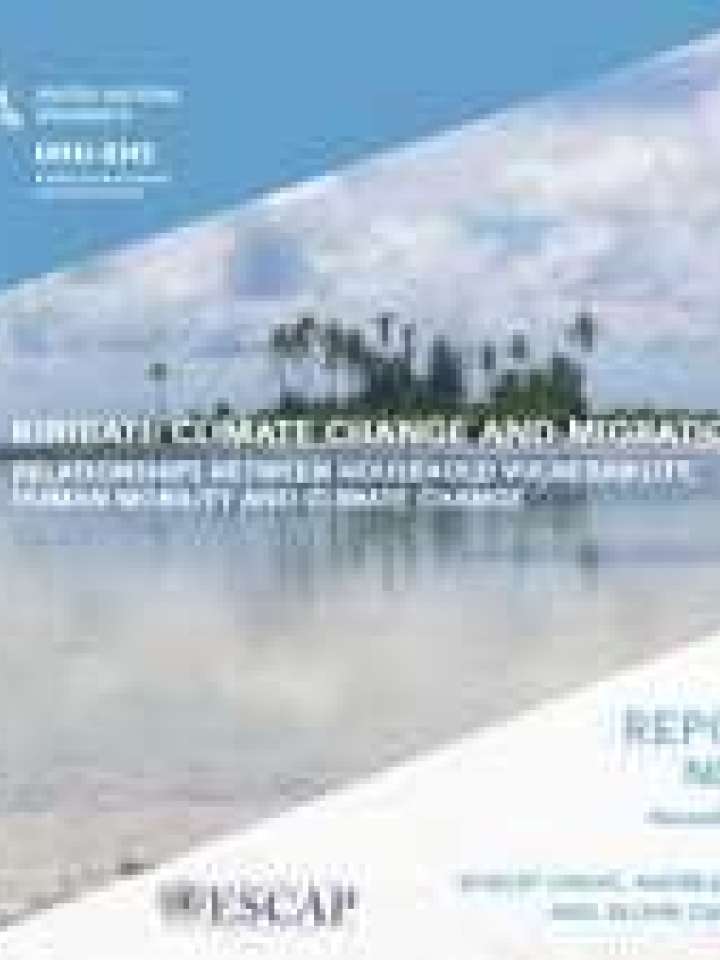Kiribati - climate change and migration: relationships between household vulnerability, human mobility and climate change, report no.20
This report presents the results of the first nationally representative empirical study of relationships between household vulnerability, human mobility and climate change in the Pacific. Findings are based upon quantitative and qualitative fieldwork carried out in Kiribati during the early part of 2015 by researchers from the United Nations University Institute for Environment and Human Security (UNU-EHS), the United Nations Economic and Social Commission for Asia and the Pacific (UNESCAP) and the University of the South Pacific (USP). Project fieldwork involved implementation of a total of 377 household surveys in South Tarawa (72), North Tarawa (103), Marakei (75), Kiritimati (Christmas Island) (75) and Butaritari (52). Participatory Research Approach (PRA) tools and a Q study were used to complement the overall analysis. An Agent Based Model (ABM) was developed using the data generated from the fieldwork to simulate the future flows of migrants from Kiribati and migration patterns within Kiribati.
The report has been produced as part of the Pacific Climate Change and Migration (PCCM) project, which has two main goals:
-> Increase the protection of individuals and communities which are vulnerable to climate change displacement and migration through targeted national and regional policies;
-> Increase labour mobility opportunities for Pacific Islanders, through well-managed labour migration schemes.
With this in mind the main objective of the study is to build institutional capacity and knowledge which will enable Kiribati to better plan and manage the impacts of climate change on migration. By developing migration indicators, providing new knowledge on labour migration and assessing community attitudes to climate change-related migration, the report will help develop effective climate change responses and national strategies to mitigate the risk of displacement and enhance national capacity to participate in regional, bilateral and global schemes on labour migration.
Explore further
